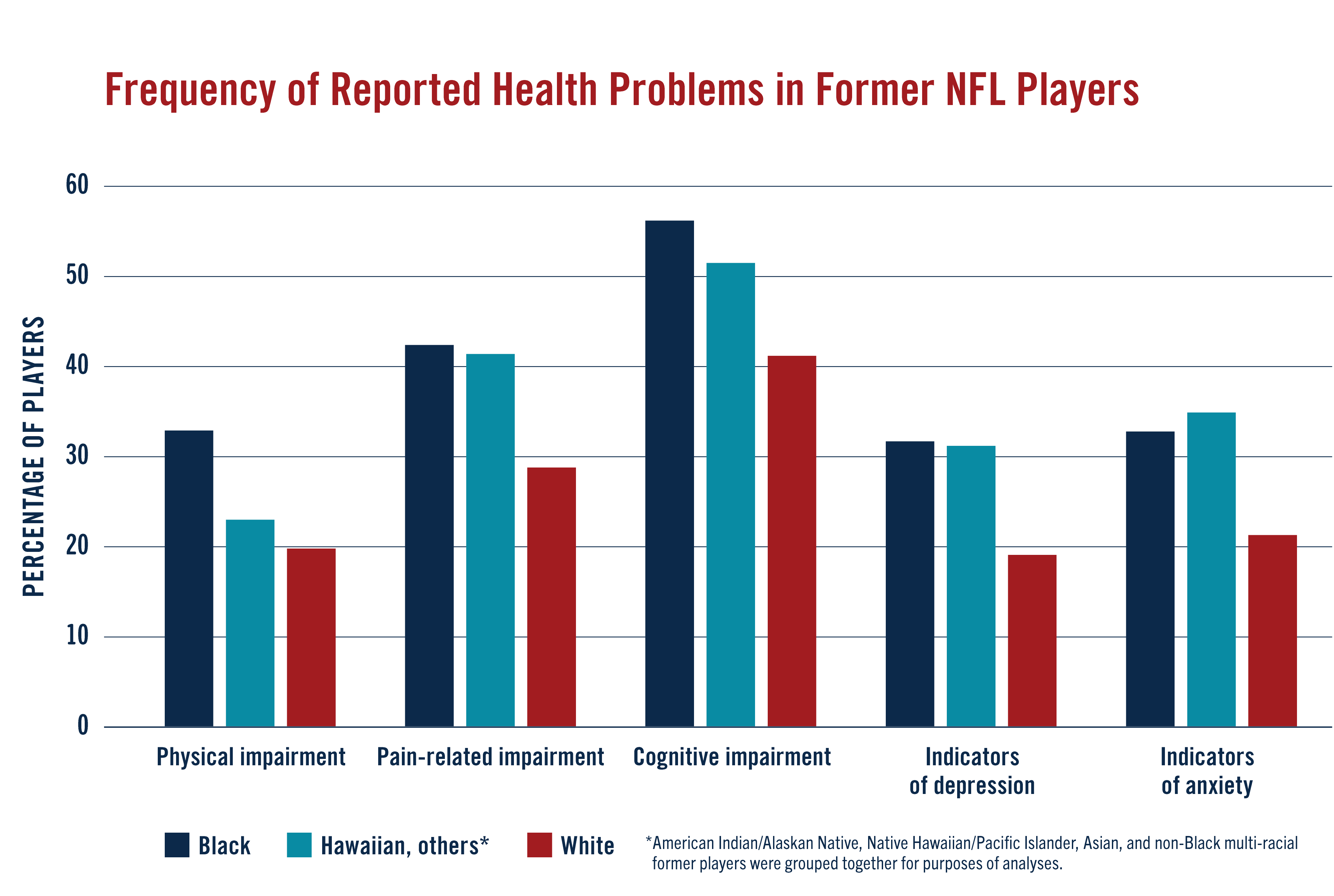Racial Disparities and Player Health
Health disparities, defined by the Department of Health and Human Services as “differences in health outcomes that are closely linked with social, economic, and environmental disadvantage […] often driven by the social conditions in which individuals live, learn, work, and play,” are a major concern in our country. We examined whether disparities in health (physical and cognitive impairment, pain, depression, and anxiety) affect quality of life for 3,747 former players of different racial and ethnic backgrounds.
What the Science Says
- Black players were more likely to have poorer health in each area we examined than White players. Native Hawaiians and players of other races had a greater risk in each area we studied except impaired physical functioning, compared with White players.
- These findings were not explained by racial differences in playing position, years of play, or body mass index (BMI). They were also not explained by games started, pain medication, or performance enhancing drug use.
- We did not find smaller health differences by racial identity in younger players, even though they played in the NFL in a more recent era (e.g., more Black coaches, higher salaries, perhaps reflecting a more progressive era) compared to older players.
- Despite having access to resources that may be considered as advantages, such as higher median income, healthcare access, college education, and expert exercise regimens, race-associated disparities were present in former players. These findings mirror what is observed of health disparities by race in the general population.
The following figure illustrates the differences in health outcomes by racial identity. Compared with White players, Black players were 36% to 86% more likely to have poorer health in each area. Additionally, other non-White players were 25% to 64% more likely to have poorer health in each area.
Action Items for Players
Our study suggests that socioeconomic advantages from participation in football does not eliminate health disparities associated with race. While these results may seem discouraging, our results confirm the presence of health disparities seen in the general United States population that need to be addressed through future policy and research to understand why these disparities persist.
The challenges that underlie health disparities by race and ethnicity are complex. For example, former players may have had these differences in experiences before, during, and after their NFL playing days. Experiences of discrimination encountered in society have been associated with high blood pressure, a major health concern. Consider speaking with your health care provider(s) about the ways your mental and physical health have been affected by these experiences. The Football Players Health Study is committed to looking beyond just the socioeconomic advantages of playing in the NFL and exploring other potential drivers of these disparities so we can better address them.

